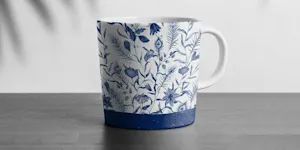What Makes This Word Tick
Ornate is the kind of word that loves showing off its decoration skills. It's here to tell you that something isn't just elaborate—it’s embellishments upon embellishments! From an ornate piece of jewelry to the intricate details of a historic building, this word shimmers with a sense of pomposity and flair.
If Ornate Were a Person…
Imagine Ornate as that eccentric aunt who shows up to family gatherings bedecked in every piece of jewelry she owns—often all at once. She’s full of stories, probably with a penchant for baroque music, and her house is a visual feast of knick-knacks and patterned wallpaper.
How This Word Has Changed Over Time
The essence of the word ornate hasn't drifted too far from its origins. It emerged from the Latin word "ornatus," which means adorned or decorated. Over the centuries, while styles and tastes have evolved, ornate has remained a trusty descriptor when simple words like "fancy" just don't cut it.
Old Sayings and Proverbs That Use Ornate
While ornate might not star in any proverbial phrases, its spirit is aligned with sayings like "gilding the lily," which critique excessive embellishment. It's one of those words that's more likely to describe the homes of wily proverbs elsewhere.
Surprising Facts About Ornate
Despite its sumptuous associations, the word ornate can apply to things both tangible, like furniture and architecture, and intangible, like an intricate plot or a complex sentence structure. Ornate doesn't play favorites with its embellishments!
Out and About With This Word
When you’re out exploring, ornate architecture grabs your attention on historic buildings, like cathedrals or historic theaters. Gardens can also be ornate, meticulously designed to dazzle and showcase an array of flora in an elaborate dance of color and form.
Pop Culture Moments Where Ornate Was Used
Films like "The Grand Budapest Hotel" use ornate set designs to sweep the audience into their stories. Think of those lavish party scenes in "The Great Gatsby," where the decor wasn't just a backdrop but a character in itself.
The Word in Literature
In literature, ornate often finds itself not just in describing settings but in the way stories are told. Writers like Charles Dickens and J.R.R. Tolkien weave narratives with ornate language that paints vivid scenes and characters in your mind.
Moments in History with Ornate
The châteaux of the French Renaissance epitomize the height of ornate architecture. When countries engaged in grand exhibitions, like world's fairs in the 19th and 20th centuries, they often displayed ornate designs to impress international audiences.
This Word Around the World
Ornate takes different forms globally: think of the peacock feather embellishments in Indian textiles, the delicate latticework in Middle Eastern architecture, or the kaleidoscopic patterns found in Mexican folk art. The world has its unique ways of adorning beauty.
Where Does It Come From?
Ornate hails from the Latin "ornatus," a past participle of "ornare," meaning to equip or adorn. It's been a favorite adjective for centuries, evolving through Middle English to our modern vernacular.
How People Misuse This Word
Some might say "ornate" when they mean "opulent" or "rich." While ornate certainly contains these elements, it is specifically about the detailed and complex decoration, not necessarily wealth or abundance.
Words It’s Often Confused With
Opulent: Opulent means wealthy or luxurious, while ornate emphasizes complexity and intricacy of decoration.
Baroque: While ornate can describe baroque's intricacies, baroque also labels a specific historical art period.
Lavish: Lavish refers to richness in spending, whereas ornate speaks to decorative detail.
Additional Synonyms and Antonyms
Synonyms for ornate include elaborate, fancy, embellished, and adorned. Antonyms would be simple, plain, unadorned, and undecorated.
Want to Try It Out in a Sentence?
"Her dress was so ornate, it could have rivaled the most intricate of Fabergé eggs, with every inch shimmering and glowing with meticulous detail."
















